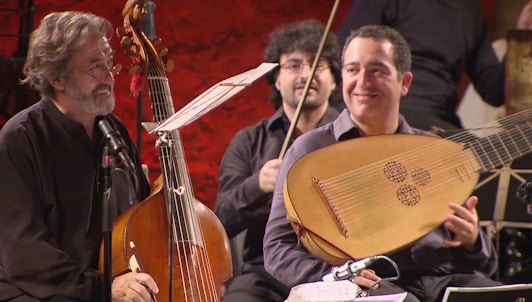"We have been inspired by Louis XV's times and we have enhanced, deformed and overplayed it. We reinvented this very particular age. We have reinterpreted it, we have associated to it many costumes and sceneries to make this production very theatrical, beautiful, sparkling, festive." (Michel Fau, stage director)
A resident of the Opéra National de Bordeaux, the ensemble Pygmalion, constituted of a choir and an orchestra on ancient instruments, had been awarded at the Victoires de la musique classique 2015. The ensemble began in 2011 a project with the operas of Bordeaux and Versailles to perform Rameau's rearranged versions of his lyric tragedies. Dardanus's original version, composed after Leclerc de la Bruère's libretto and premiered at the Théâtre du Palais-Royal in Paris in 1739, had been very badly welcomed by the audience. As a consequence, Rameau wrote a complete new version of its three last acts in his 1744 version.
Inspired of ancient mythologies, Rameau's opera stages one of Jupiter's sons, Dardanus (here performed by Reinoud Van Mechelen), whose love for Iphise (Gaëlle Arquez), daughter of the king of Phrygia (Teucer, here performed by Nahuel Di Pierro), who is also his rival, faces several impediments. Destined for Anténor (Florian Sempey), Iphise, who is confused, asks Isménor (Jupiter's priest) for his help; however Isménor had lent his face to Dardanus to help him understand Isménor's feelings. Dardanus will have to face a lot of ordeals, first being caught by the Phrygians, then having to face Anténor's jealousy and evade the plot set by Teucer, before Teucer finally accepts their union.
Through an extraordinary combination of mythological and supernatural themes, developed in an enchanting ballet, Rameau leads to its climax this lyric tragedy, at the heart of French Baroque inspiration. Philippe Beaussant, a musicolog, at this point will qualified Dardanus as a "French cultural exception".
Picture: Dardanus © Frederic Desmesure
